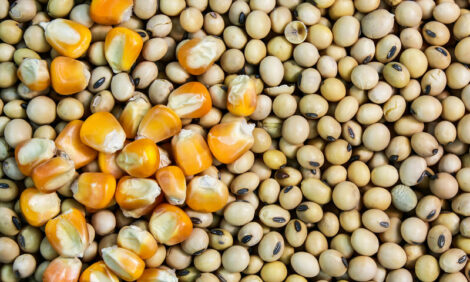



Act Now To Limit Wet Weather Impact On Animal Performance
FARMING UK - Maintaining animal performance during the current wet weather is proving to be a considerable challenge for livestock farmers across the UK, with milk yields and butterfats suffering.According to KW nutritionist Ian Pickles, the big threat is coming from an overestimation of the nutrients being consumed by stock grazing this wet grass, with cows consuming a lot of bulk as water, rather than nutrient rich dry matter.
"Extended periods of cloud cover mean less photosynthesis, lower sugar levels and a reduction in grass energy content," he explains. "In many cases, there's now an imbalance between energy and protein supply in the rumen, whilst the lush grass contains insufficient effective and digestible fibre for the rumen to function properly.
"As a result, rumen fermentation efficiency is being compromised. Combine this with dramatic reductions in dry matter intakes, and it's not surprising that stock are getting much less from their grazing than normal," Mr Pickles adds.
In addition to the physical difficulty in consuming enough of the wet fresh matter to meet target dry matter intakes, livestock grazing behaviour is also being directly affected by the weather. Farmers are reporting that many stock just don't want to go back out after milking, are spending much of the time sheltering and not grazing, or are treading-in the grass that is on offer.
"If possible, start by altering any feed offered alongside the grass to supply the missing fibre and soluble sugars. A buffer feed – if not already being offered – is now almost an essential, with feeds like soya hulls and sugar beet feed being excellent sources of digestible fibre that are easy to feed, whether as a separate meal offered in troughs for beef cattle and sheep, or as a main energy supply for dairy cows.
"Effective long fibre to help improve rumen function can come from chopped straw, chopping the fibre to approximately 5cm to prevent sorting while maintaining good structure. The inclusion of a yeast like Biosaf will help to stimulate rumen fermentation."
And if conditions persist, Mr Pickles recommends re-housing animals, at least for some period of time, until the weather improves. It may mean breaking into silage clamps early, but this will prevent wasting grass through trampling, allow greater control over nutrient intakes and there will be more grass available for later cuts to make up.
TheCattleSite News Desk


